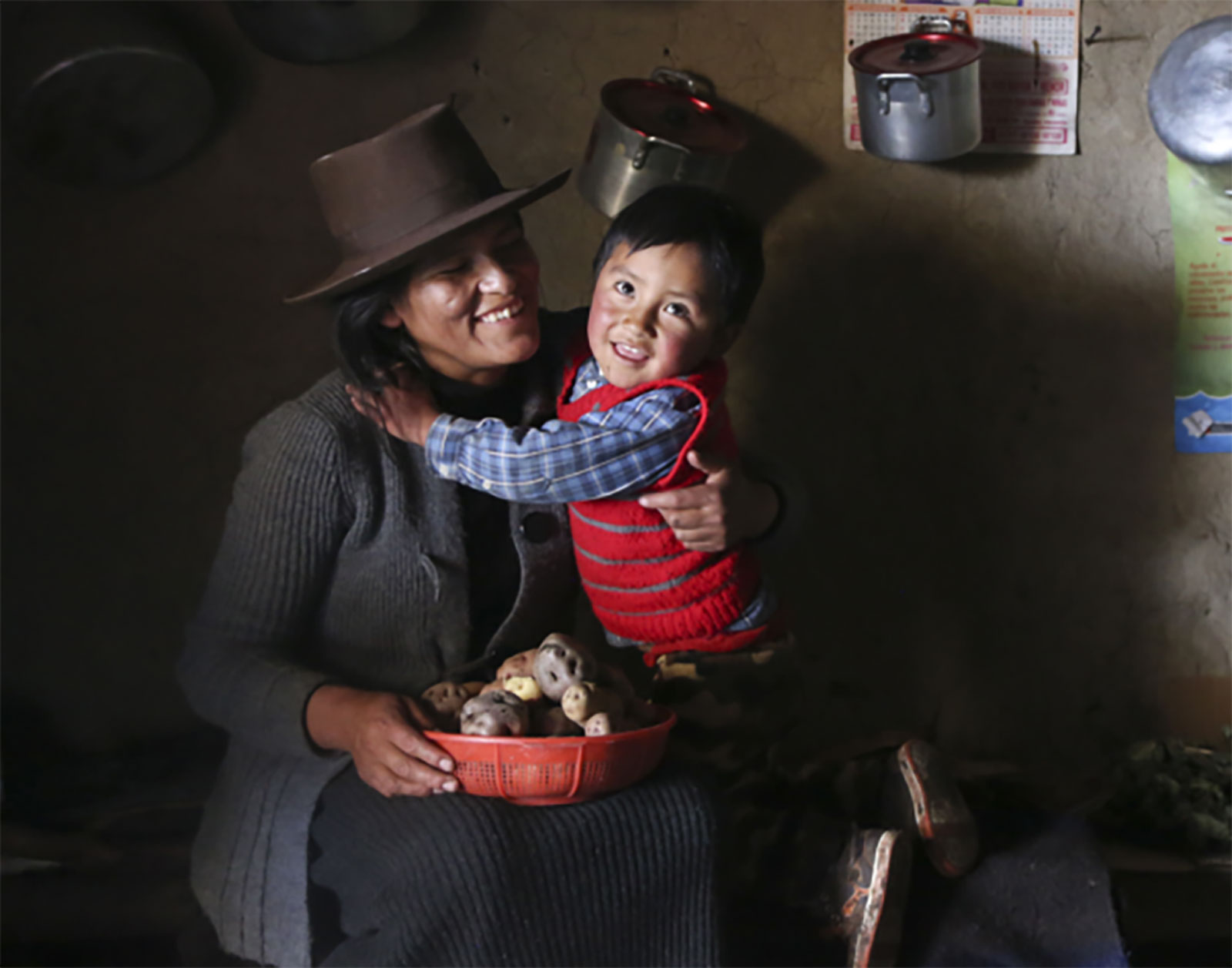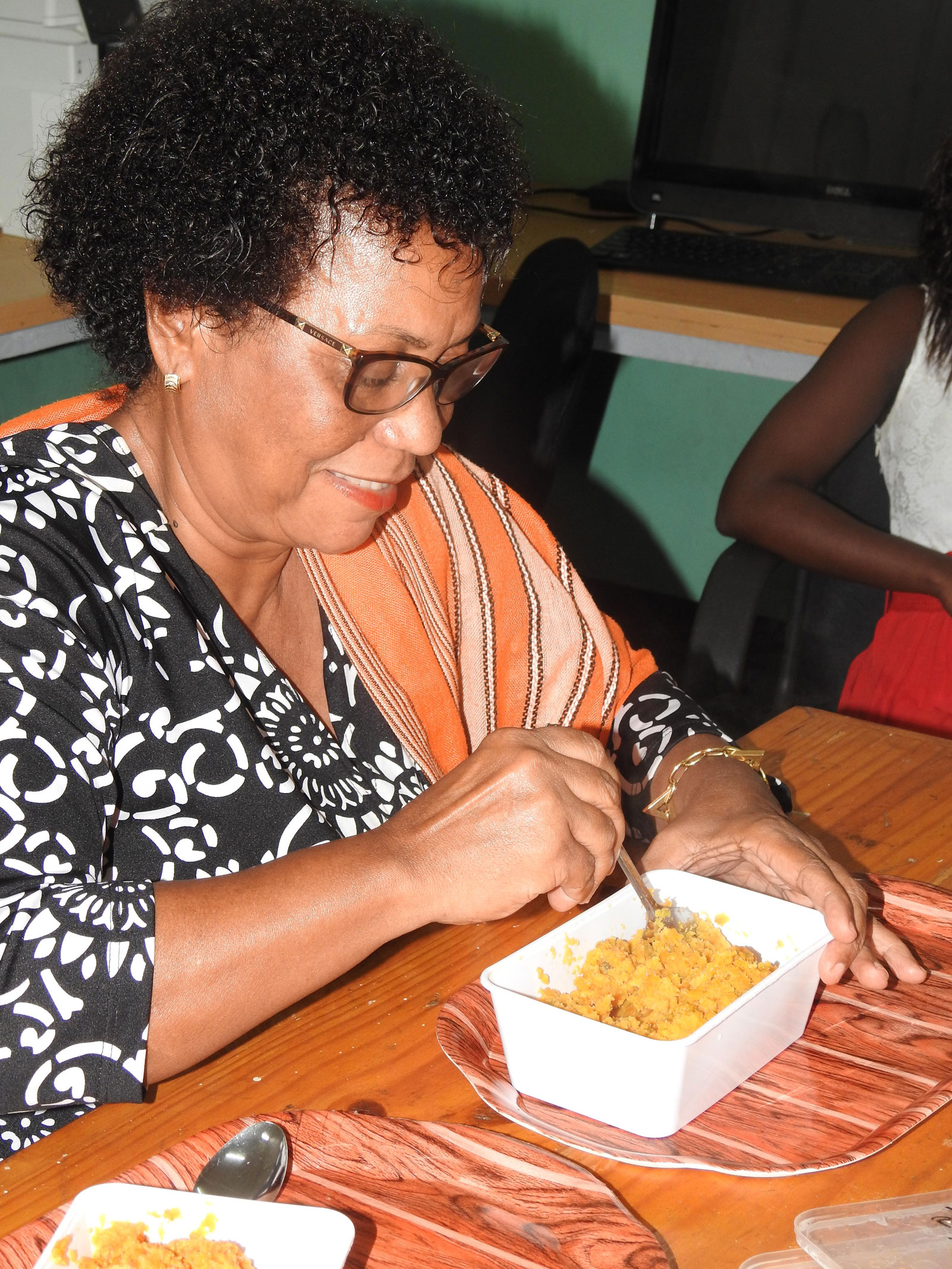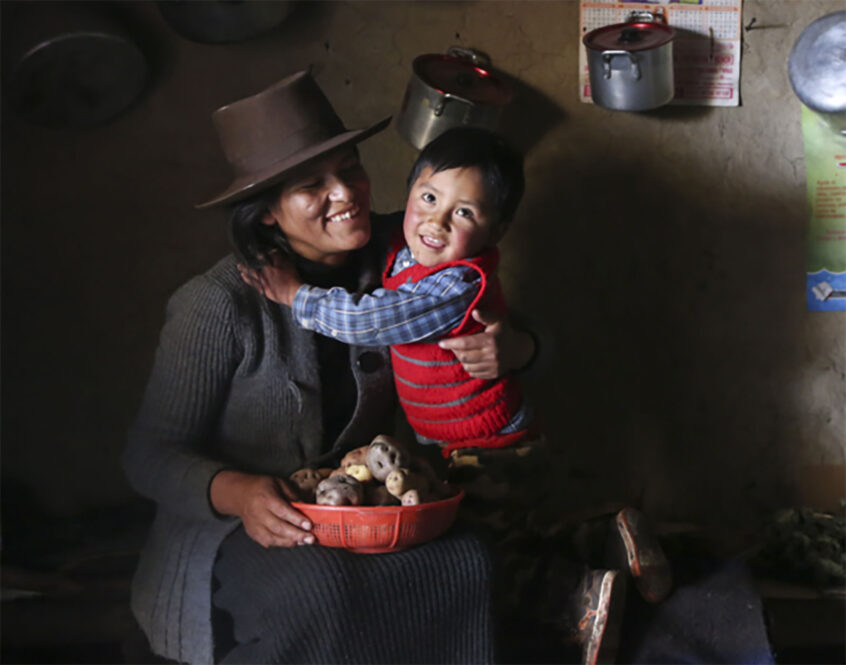In developing countries, almost half of young women and children under five suffer from anemia, caused by a lack of iron in their diets. While beans and certain vegetables are iron-rich, the iron in potatoes and sweetpotatoes is easier for the human body to absorb, because these crops are low in plant compounds (like phytates ad phenolic acids) that inhibit iron absorption.
An RTB study In Malawi concluded that women could get 18% of the iron they needed by eating iron-biofortified, orange-fleshed sweetpotato (OFSP) over two weeks.
In a study in Peru, RTB recently found that iron absorption from a yellow-fleshed potato variety is significantly higher than that in a purple–fleshed, iron-biofortified potato. High polyphenol levels in the purple fleshed potato were likely the major inhibitors of iron absorption. Iron absorption from a yellow–fleshed, biofortified clone is expected to be as high as from the yellow-fleshed variety.
Gabriela Burgos, nutritionist at CIP explains “Peruvian women could obtain 33% of their daily iron needs from the yellow-fleshed potato variety and probably more than 50% of their needs from an iron-biofortified, yellow-fleshed potato clone. So, it could be a key food to promote in the Government’s Zero Anemia Program”.
These studies give promise that roots and tubers can make a key contribution to meeting women’s iron needs, considering their greater potential for biofortification, because potato and sweetpotato are amenable to conventional breeding to increase their iron and zinc content.


SHARE THIS

